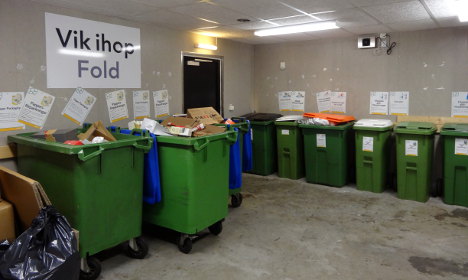The woman discovered the money in a bin bag in a garbage room in Skärholmen, to the south-west of the capital, in January 2013.
She then took the garbage bag and its contents to the police’s lost property department.
“In these cases you are supposed to hand the goods in to police as soon as possible,” the woman’s lawyer, Patric Lindblom, told The Local.
“If the owner does not get in touch with police within three months then the person who gave it to police should get the goods back.”
The process was then delayed when officers launched an investigation into suspected money laundering the day after it was handed in.
“But they closed the investigation within a day since there were no suspects,” said Lindblom.
READ ALSO: Swedes get ready for major bank note switch
However, with no similar cases to work from, police were then unsure how to proceed.
“They didn’t know what to do with the money so they didn’t re-register it as lost property,” the lawyer said.
Eventually, the woman took the case to the Parliamentary Ombudsman, who criticized the police’s handling of the case, stating that the seizure should have been reverted to lost property.
Finally, in July, after two and a half years, the money was returned to the woman.
“She’s very pleased but of course she is quite upset that it took so long,” Lindblom said.
According to the lawyer, such cases are extremely unusual.
“I have never come across a similar case myself and have not heard of any colleague who has had a similar case either.”
“Normally if you bring lost property to the police you get it back after three months or the actual owner gets in touch with police.”



 Please whitelist us to continue reading.
Please whitelist us to continue reading.
Member comments